The Question of Space
Place, Memory, Affect
Series editors: Neil Campbell, Professor of American Studies at the University of Derby and Christine Berberich, School of Social, Historical and Literary Studies at the University of Portsmouth.
The Place, Memory, Affect series seeks to extend and deepen debates around the intersections of place, memory, and affect in innovative and challenging ways. The series will forge an agenda for new approaches to the edgy relations of people and place within the transnational global cultures of the twenty-first century and beyond.
Walking Inside Out edited by Tina Richardson
The Last Isle: Contemporary Taiwan Film, Culture, and Trauma by Sheng-mei Ma
Divided Subjects, Invisible Borders: Re-Unified Germany After 1989 by Ben Gook
The Mothers Day Protest and Other Fictocritical Essays by Stephen Muecke
Affective Critical Regionality by Neil Campbell
Visual Arts Practice and Affect edited by Ann Schilo
Haunted Landscapes edited by Ruth Heholt and Niamh Downing
In the Ruins of the Cold War Bunker: Affect, Materiality and Meaning Making edited by Luke Bennett
The Question of Space: Interrogating the Spatial Turn between Disciplines edited by Marijn Nieuwenhuis and David Crouch
Nature, Place and Affect: The Poetic Affinities of Edward Thomas and Robert Frost 19121917 by Anna Stenning (forthcoming)
Published by Rowman & Littlefield International Ltd
Unit A, Whitacre Mews, 26-34 Stannary Street, London SE11 4AB
www.rowmaninternational.com
Rowman & Littlefield International Ltd. is an affiliate of Rowman & Littlefield
4501 Forbes Boulevard, Suite 200, Lanham, Maryland 20706, USA
With additional offices in Boulder, New York, Toronto (Canada), and Plymouth (UK)
www.rowman.com
Copyright 2017 Selections and Editorial Matter Marijn Nieuwenhuis and David Crouch
Copyright in individual chapters is held by the respective chapter authors.
All rights reserved. No part of this book may be reproduced in any form or by any electronic or mechanical means, including information storage and retrieval systems, without written permission from the publisher, except by a reviewer who may quote passages in a review.
British Library Cataloguing in Publication Data
A catalogue record for this book is available from the British Library
ISBN:HB 978-1-7866-0194-0
PB 978-1-7866-0195-7
Library of Congress Cataloging-in-Publication Data Is Available
ISBN 978-1-78660-194-0 (cloth: alk. paper)
ISBN 978-1-78660-195-7 (pbk: alk. paper)
ISBN 978-1-78660-196-4 (electronic)
 The paper used in this publication meets the minimum requirements of American National Standard for Information SciencesPermanence of Paper for Printed Library Materials, ANSI/NISO Z39.481992.
The paper used in this publication meets the minimum requirements of American National Standard for Information SciencesPermanence of Paper for Printed Library Materials, ANSI/NISO Z39.481992.
Printed in the United States of America
Acknowledgements
The completion of this book was made possible with an Early Career Research Grant from the Institute of Advanced Study at the University of Warwick. We would like to thank the editors of the Place, Memory, Affect series Professor Neil Campbell and Dr Christine Berberich for their invaluable help and expertise that greatly assisted our writing. We also thank Mike Watson, Editorial Assistant at Rowman & Littlefield International, for his patience throughout the entire process. We are grateful to Andrei Belibou for his invaluable help with the referencing and indexing in this book. Finally, we thank the contributors of this volume for their creative writings and unbridled enthusiasm.
Prelude
Playing with Space
Marijn Nieuwenhuis and David Crouch
This edited volume is the spontaneous and unplanned child of an interdisciplinary marriage between scholars from a variety of backgrounds. It found its world through workshop dialogues, email conversations, thought speculations and musings about the meaning and value we attach to the concept and matter of space in our respective work. Because of its very nature, space provided us with the perfect mediation to collaborate and speak to another. Space performs as a category of knowledge in all our work but is in our thinking also a practising of reality. The way we, as disciplined scholars and socialized individuals, think about space informs the way we shape, value, delineate, relate and interact with the materiality of the world. An interdisciplinary analysing of space, as proposed here, is not a passive preoccupation but a dynamic and displacing force. Our intention, therefore, is not merely to speak metaphorically when we claim that space has helped us to build bridges between us but to argue and show that our conversations have helped us in establishing news spaces.
The collection presents ten innovative research chapters and a conclusion, chapters that demonstrate grounds for conceptual growth and investigative originality, collaboration across common ground, and increasingly shared theoretical sources, yet each in their own disciplines demonstrating the distinctive character that each brings to the debate concerning space. Space is addressed as problematic and not obvious, self-evident or resolved, but, like itself, its understanding if continually in the making, and remains so through the book, yet prompting further enquiry.
This volume brings together a range of authors from different backgrounds each of whom in their distinctive manner present different readings of the ways in which we relate to the thing and subject of space. None of us accept the idea that space is an afterthought of social relations (Warf and Arias 2009: 1) that it is a reality independent of our existence. Space and time only exist when there are entities in some sense in space and time (Urry 1985: 24). We agree with Barney Warf and Santa Ariass (2009: 1, original emphasis) claim that the where things happen is critical to knowing how and why they happen. The so-called spatial turn, originally a response to a long-standing privileging of time in the humanities and social sciences, has made explicit that we are intrinsically spatial as well as temporal beings, active participants in the production and reproduction of the encompassing human geographies in which we live (Soja 2009: 12, but see especially Soja 1989). Our objective, therefore, is not to explore how space has entered our different fields, as space was always already there, but is rather more focused on making the spatial in our thinking explicit. The volume intends to offer its readership with a mapping of different ways of knowing space. The lines of its cartography are only bounded by the limits of the geographic imaginations of its authors. Indeed, as one of our contributors remarks, Space is not one thing (Conway, this volume). Space comes in many guises: points, planes, parabolas; blots, blurs and blackouts (Thrift 2006: 141).
Space is relational, subjective and personal. Our understanding of it corresponds to that of Doreen Massey (2008: 9) for whom space is a relative product of interrelations connected through identities and entities that provide it with directions, scale, meaning, borders and difference. According to her second preposition in For Space, it is a contemporaneous plurality predicated upon the existence of plurality. Its existence, she argues, is contingent on those temporally moving relations that shape it by means of literature, metaphors, mathematics, art and poetry. If we were to accept that space is a simultaneity of stories-so-far, which we do, then our volume should be read as a multiplicity of unfinished stories of relations.

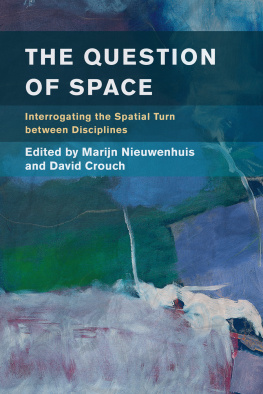

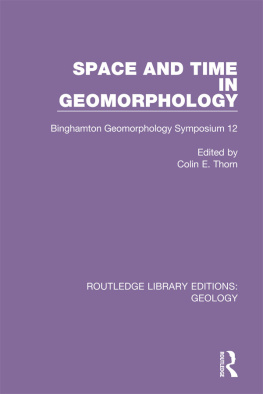
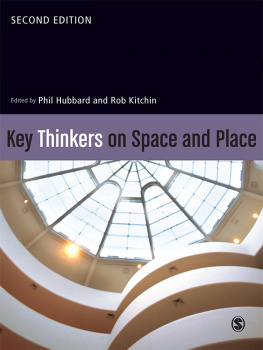
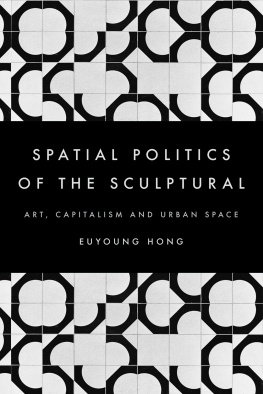
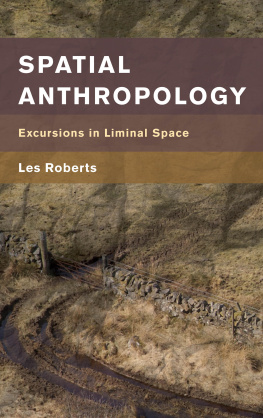
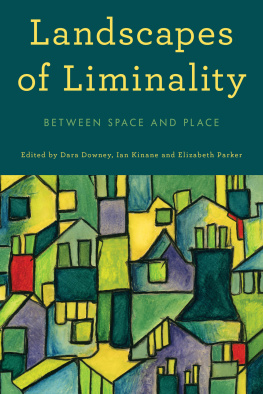
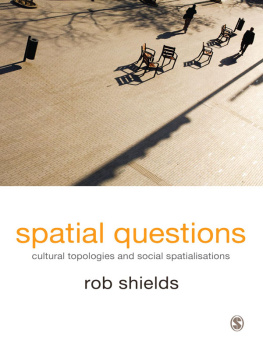

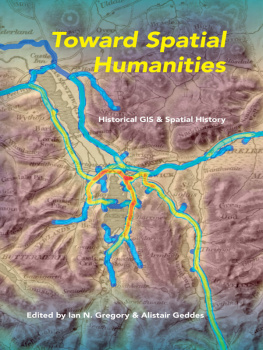

 The paper used in this publication meets the minimum requirements of American National Standard for Information SciencesPermanence of Paper for Printed Library Materials, ANSI/NISO Z39.481992.
The paper used in this publication meets the minimum requirements of American National Standard for Information SciencesPermanence of Paper for Printed Library Materials, ANSI/NISO Z39.481992.